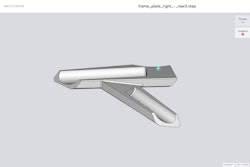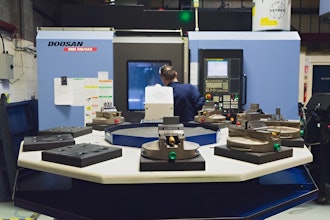
 Tony Joseph
Tony Joseph In the pre-mobility days, a typical enterprise involved in field management operations dabbled with whiteboards, spreadsheets, and Outlook calendars. Even in this age of wholesale adoption of emerging technologies, 52 percent of companies use manual methods to manage bulk of their field service tasks rather than software solutions. Most of the scheduling was ad-hoc and reactive in nature, with the scheduler spend most of his time firefighting. Needless to say, errors, slip-ups, broken promises, and delays were day-to-day occurrences. Customers, at the receiving end of late appointments or worse, the technician not showing up at all, would soon start to look elsewhere.
The Need to Keep the Customer Informed
Increasing customer expectations leave enterprises with little choice but to opt for a robust and comprehensive field management software which automates the scheduling, and eliminates errors from the equation.
The Expediency of Smart Scheduling
At the back-end, the need for efficiency has never been as profound before. The highly competitive business environment, with razor-thin margins, leaves very little scope for waste. Field management software would ensure optimal deployment of technicians. It can, for instance, deploy the technician nearest to the location, to handle an emergency service request. It can group together and schedule service requests in a way the technician spends more time servicing machines and less time moving about on the roads. Overall, a field management software enables optimal utilization of resources.
Smart field management not only schedules optimally but matches the skill-sets of the technician with the job, to ensure the right technician is assigned to the right job. Despite such smart scheduling, the technician may invariably find a job out of their league. The suites also co-opt a collaborative platform, allowing field technicians to connect with their command center or other technicians. The technician can thereby get access to the expert resource and advise, and thereby finish a complex job in one visit, rather than reschedule the job for another day, for want of expertise.
The Importance of Effective Coordination
A field service management suite not only schedules the available technicians in the best possible way. But also serves as a platform to coordinate works efficiently, without downtime, hold-ups, or wastages. Consider an example of installing a large CNC machine, which would require not just a sequence of events, but also require the installation technician to coordinate closely with subcontractors, electrical personnel, software specialists, and others.
The dynamic scheduling facilitated by a field management suite handles all the planning and scheduling variables, together with its dependencies, automatically, ensuring the entire process takes place seamlessly, without a hitch.
A sound field management suite would factor in all variables, such as staff availability, holidays, the order of priority, technical competence of the agent to handle a specific issue, and more. The field management system also keeps track of the technician in real-time, by means of sensors and GPS tracking, to adjust schedules. The customer is updated real-time, and can even track their technician live. Today’s customers are themselves busy and would need their technician to arrive in a tight predetermined window.

Automated Follow up and Connected Tasks
A state-of-the-art field management system offers different modules, such as contract modules, job costing tools, and more. The enterprise may keep track of customer account and initiate service contract renewals, the system may bill the client automatically after a service visit, and also updates the server logs. At the backend, it may update the company’s Human Resource Information System, accurately logging the employees hours of work and updating holidays, overtime, and other factors otherwise painstakingly calculated manually. Likewise, it may update the accounts automatically, sparing the enterprise considerable time and effort which they can devote to their core competence.
Improved Visibility and Control
Field service software allows schedulers, supervisors, and managers 100 percent visibility into operations, allowing them to remain in control and take timely decisions. It improves transparency manifold, which is a basic prerequisite of a learning organization. The insights on offer allow managers and other stakeholders to identify pain-points and make timely interventions. Such real-time insights and interventions help to nip issues in the bud before it escalates into serious operational delays and customer satisfaction issues. It especially helps handle unexpected downtime and other issues in an orderly way, directing all available resources to the place where it is required most, without chaos.
The technicians too benefit from the improved visibility and control offered by the field service software. The technician is not just instructed to proceed to a site, but the suite also offers direction to the site, the nature of the tools and spare parts required, information on the service history of the customer, contact numbers, applicable warranty, and contractual commitments, and all other critical information to service the client in the best possible way. The technician and other employees may access relevant data at any time, and at any point, with total transparency.
The greater control and visibility on offer improves productivity and enhances professionalism, leading to an all-around positive work atmosphere and job satisfaction among the rank-and-file.
The spread of mobility, which allow stakeholders, be it the technicians themselves or the managers, to access the field management suite through their smartphones, through custom-designed apps tailored to the need of each stakeholder, adds to the convenience and control.
Field Management Suite Facilitates a Proactive Enterprise
Truly smart field service management suites integrate with IoT to expand the potential manifold. It could, for instance, gather data from sensors attached to the machinery deployed on the field to diagnose the error which triggered the service request. The system could also keep track of the health of the parts and components, triggering preventive maintenance and avoiding a crisis.
The digital age has resulted in a proliferation of machines, leading to an increasing role for field service technicians. Field service scheduling software, which is the core around which most enterprises strive for successful service delivery, allows business to keep their operations in control, and delight customers. The investment in a smart field management suite pays back manifold through productivity gains, efficiency improvements, and customer delight.
Tony Joseph is a Client Engagement Manager at Fingent.






















